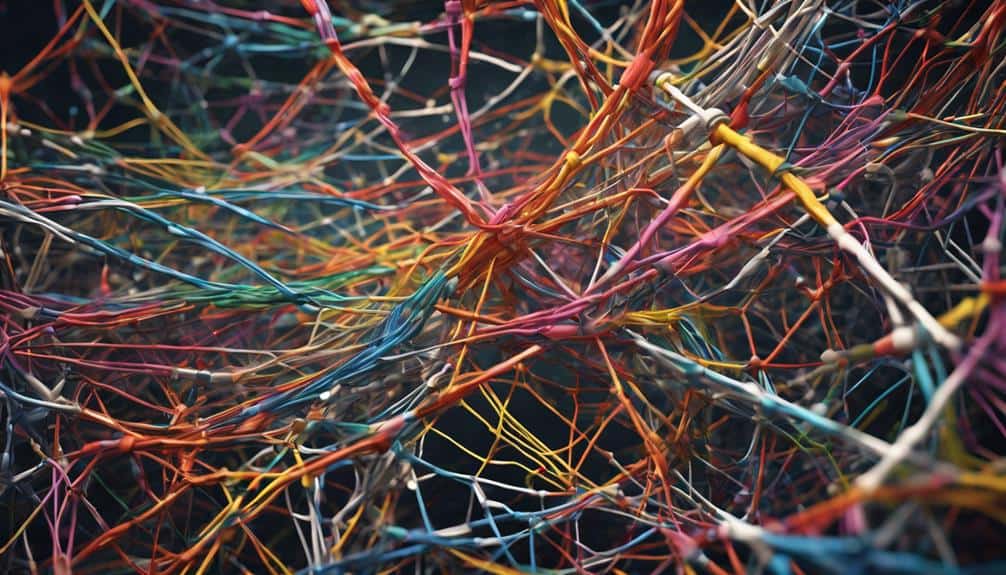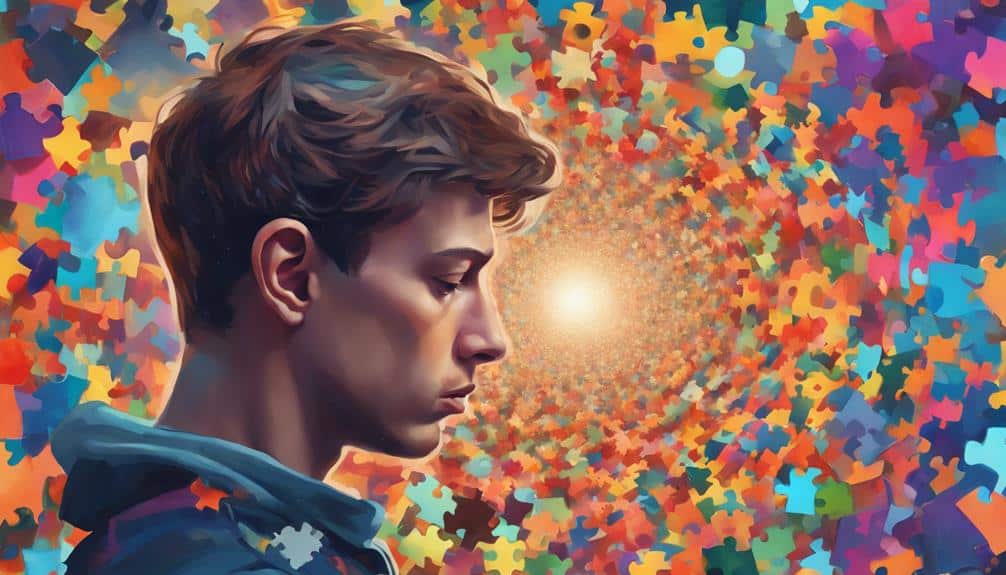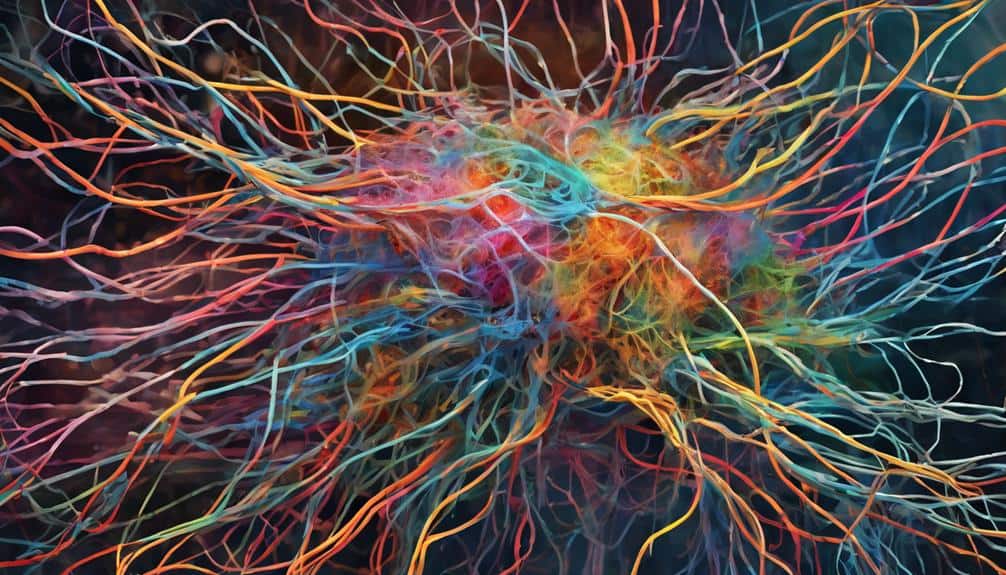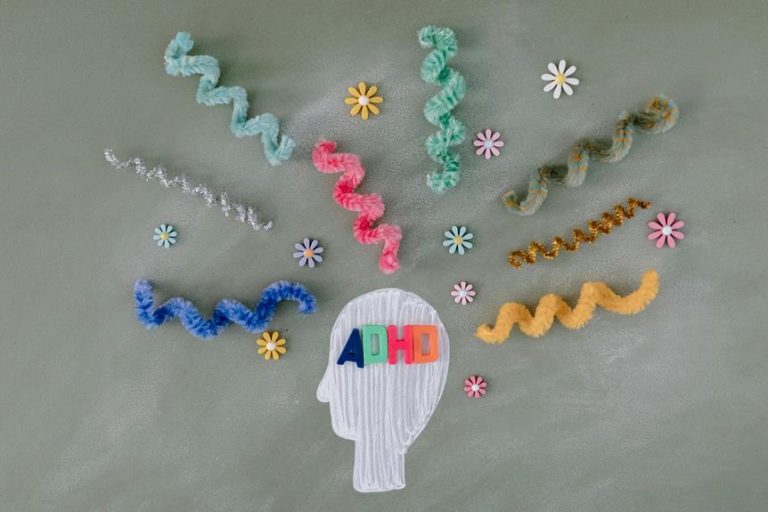Aphantasia Adhd
As I navigate through the intricate web of my mind, I find myself pondering the curious relationship between aphantasia and ADHD.
The intersection of these two conditions offers a unique perspective on how our brains perceive and process information. While aphantasia challenges the visualization of mental imagery, ADHD disrupts attention and focus.
Together, they create a complex tapestry that warrants closer examination, shedding light on potential strategies for coping and thriving amidst these cognitive intricacies.
Key Takeaways
- Aphantasia and ADHD impact cognitive functions differently.
- Understanding the prevalence aids accurate diagnosis and treatment.
- Tailored strategies improve daily functioning for affected individuals.
- Shared challenges require holistic interventions for effective management.
Understanding Aphantasia and ADHD

Aphantasia and ADHD present distinct challenges in cognitive processing and attention regulation, impacting individuals' daily functioning and cognitive abilities. Aphantasia, affecting 1-3% of the population, is characterized by the inability to visualize mental images. This condition hinders memory recall, learning, and reading comprehension due to the lack of mental imagery.
On the other hand, ADHD, which affects around 5% of children in the United States, leads to focus issues and impulsivity, affecting attention regulation.
The symptoms of Aphantasia and ADHD manifest differently but share a common thread of disrupting cognitive functions. While Aphantasia primarily affects visual imagery, ADHD impacts attention and focus. Treatment options for these conditions vary, with Aphantasia often managed through cognitive behavioral therapy and ADHD treated with a combination of medication and therapy.
To cope with these challenges, individuals with Aphantasia and ADHD may develop unique coping mechanisms tailored to their specific needs. Understanding the prevalence and symptoms of both Aphantasia and ADHD is critical for effective management and support for individuals dealing with these cognitive conditions.
Connection Between Aphantasia and ADHD

The correlation between memory retention in individuals with ADHD and their ability to visualize mental images remains a topic of interest for researchers studying the connection between cognitive conditions. When exploring the connection between aphantasia and ADHD, it's vital how these two conditions may intersect and influence cognitive functions. Here are some key points to ponder:
- Overlap in Cognitive Challenges: Both aphantasia and ADHD involve executive functions such as working memory and cognitive flexibility, suggesting potential commonalities in how these conditions impact cognitive processing.
- Impact on Focus and Memory: Individuals with ADHD often struggle with focus and memory, areas that can also be influenced by aphantasia, raising questions about how these difficulties may interact.
- Working Memory Implications: ADHD is linked to impaired attention and working memory, while aphantasia directly affects the ability to create mental images, potentially affecting how information is stored and processed.
- Complexity of Manifestations: Individuals with aphantasia and ADHD may exhibit diverse manifestations of cognitive challenges, underscoring the intricate nature of these neurological conditions and the need for further research to clarify their relationship.
Signs of Aphantasia and ADHD

Exploring the observable indications of aphantasia and ADHD sheds light on the distinct manifestations of cognitive processing challenges in individuals affected by these conditions. Signs of aphantasia include difficulty visualizing faces, movements, and attire of close friends or family members. People with aphantasia may struggle to recall distinctive features or gestures of individuals they know, as the inability to form mental images is a key sign of aphantasia. This imagery weakness can lead to challenges in tasks requiring visualization, impacting daily life.
When considering ADHD and aphantasia, it's important to note that individuals with ADHD struggle with symptoms that may overlap with aphantasia, such as inattention and difficulty concentrating. The prevalence of aphantasia (imagery weakness) within the ADHD population warrants further exploration to understand the potential link between these conditions. Recognizing the signs of aphantasia alongside ADHD symptoms is essential for accurate diagnosis and implementing effective strategies for treating ADHD.
Reasons for Aphantasia and ADHD

Research indicates various underlying factors contributing to the development of aphantasia and ADHD, shedding light on the complex interplay of genetic, neurological, and cognitive influences. When exploring the reasons for aphantasia and ADHD, several key points emerge:
- Damage to the brain's visual cortex or hereditary factors can lead to aphantasia in some individuals.
- Chemical imbalances and genetic predispositions are associated with the development of ADHD.
- Potential connections have been suggested between aphantasia, ADHD, anxiety, and depression, indicating a shared underlying mechanism.
- Individuals with ADHD may struggle with mental imagery due to dopamine deficiencies, impacting their ability to visualize and imagine scenarios effectively.
Understanding these factors is vital in addressing the challenges faced by people with aphantasia and ADHD. By recognizing the intricate relationship between these conditions and their underlying causes, tailored therapies and interventions can be developed to improve attention, focus, and overall mental well-being.
Treating Aphantasia and ADHD

When addressing the treatment of aphantasia and ADHD, a multifaceted approach combining coping strategies, medication, therapy, and lifestyle adjustments is essential for effective symptom management.
For aphantasia, coping strategies such as using verbal cues and mnemonic devices can help individuals compensate for their lack of visual imagery.
On the other hand, ADHD treatment typically involves a combination of medication, therapy, and skill-building techniques to address symptoms of inattention, hyperactivity, and impulsivity. Cognitive-behavioral therapy (CBT) has shown to be beneficial in managing symptoms of ADHD by targeting specific behaviors and cognitive patterns.
Additionally, lifestyle modifications like regular exercise and a balanced diet can support symptom management for both aphantasia and ADHD.
Seeking tailored treatment plans from healthcare professionals is vital for individuals dealing with aphantasia and ADHD. These professionals can provide personalized recommendations and interventions to address the unique challenges that come with these conditions, ultimately improving the individual's quality of life.
Managing Aphantasia and ADHD

Managing the coexistence of aphantasia and ADHD requires a holistic approach integrating visualization exercises, therapy, medication, lifestyle adjustments, and professional guidance. Here are four key strategies to help effectively manage these conditions:
- Visualization Exercises: Engaging in regular visualization exercises can aid individuals with aphantasia in enhancing their mental imagery skills, potentially improving memory recall and cognitive processes.
- Therapy and Medication: Seeking therapy for ADHD symptoms and considering medication prescribed by healthcare professionals can help individuals better manage their attention, hyperactivity, and impulsivity challenges.
- Lifestyle Modifications: Incorporating regular exercise, maintaining a balanced diet, and utilizing organizational tools can assist in managing ADHD symptoms and promoting overall well-being for individuals with aphantasia and ADHD.
- Professional Support: Consulting with healthcare providers, therapists, or counselors to develop personalized treatment plans is essential for effectively maneuvering the complexities of aphantasia and ADHD, ensuring thorough support and guidance tailored to individual needs.
Exploring Aphantasia and ADHD Intersection

When considering the intersection of aphantasia and ADHD, it becomes vital to analyze the cognitive impact of aphantasia on individuals with ADHD. The symptoms that may overlap between the two conditions and the coping strategies that could be effective for managing these challenges.
Understanding how aphantasia affects cognitive processes like working memory and attention regulation in the context of ADHD symptoms can shed light on potential shared mechanisms.
Exploring coping strategies tailored to address the unique needs of individuals experiencing both aphantasia and ADHD could enhance their daily functioning and quality of life.
Cognitive Impact of Aphantasia
The cognitive impact of aphantasia manifests in various ways, influencing memory, imagination, and problem-solving abilities, which can intersect with conditions like ADHD.
- Aphantasia can hinder memory recall and retention, affecting daily functioning.
- Limited imagination may impede creative thinking and learning abilities.
- Challenges with mental imagery can hamper problem-solving skills and spatial awareness.
- Difficulty in mental simulations might impact how individuals approach tasks and navigate complex scenarios.
Understanding these cognitive implications is important in comprehending how aphantasia and ADHD may interact, potentially shedding light on tailored interventions for individuals facing both conditions.
ADHD Symptoms and Aphantasia
Exploring the intersection of aphantasia and ADHD reveals the complex interplay between challenges in forming mental images and difficulties with focus and impulsivity. Individuals with ADHD often struggle with attention and focus, while those with aphantasia may experience difficulty remembering and have an inability to visualize.
This combination can greatly impact memory recall, reading comprehension, and overall cognitive functions. Aphantasia affects executive functions like working memory and cognitive flexibility, exacerbating the challenges faced by individuals with ADHD.
The co-occurrence of these conditions can lead to a unique set of struggles that require tailored support and intervention strategies to address both the cognitive aspects of aphantasia and the attention-related issues associated with ADHD. Understanding these interactions is vital for developing effective treatment approaches.
Coping Strategies for Aphantasia
Utilizing verbal cues, mnemonic devices, and other sensory modalities serves as effective coping strategies for individuals with aphantasia, helping to compensate for the absence of visual imagery.
When dealing with aphantasia, incorporating mindfulness practices and visualization exercises can enhance mental imagery skills. Exploring sensory experiences like touch, smell, and sound can boost creativity and aid in memory recall.
Seeking guidance from mental health professionals and participating in support groups offer valuable strategies for managing aphantasia. Additionally, practicing relaxation techniques such as deep breathing and progressive muscle relaxation can reduce stress and improve overall well-being for those with aphantasia.
These coping mechanisms can be particularly beneficial for individuals handling the intersection of aphantasia and ADHD.
Frequently Asked Questions
Can ADHD People Have Aphantasia?
Yes, individuals with ADHD can experience aphantasia, a condition where they struggle to visualize mental images. This can impact cognitive function, memory retention, creative thinking, and overall neurodevelopmental disorders, showcasing the complexity of these conditions.
Do People With ADHD Struggle With Visualizing?
Struggling with visualizing is common for those with ADHD due to attention and memory challenges. It can be tough to focus and create detailed mental images. These cognitive hurdles can hinder the visualization process.
Do People With ADHD Have Blank Minds?
I don't experience blank minds with ADHD. My thoughts race due to constant mental activity. Attention deficits and impulsivity make it challenging to focus and organize thoughts. My mind is busy, not blank.
What Is Aphantasia Correlated With?
Aphantasia is correlated with memory retention, creative imagination, cognitive processing, mental imagery, neurological differences, visual perception, cognitive development, brain activity, memory recall, and mental visualization. Understanding these connections sheds light on the complexities of aphantasia.
Conclusion
In summary, the intersection of aphantasia and ADHD presents a unique challenge for individuals struggling with both conditions.
Imagine trying to remember a childhood memory without being able to visualize it, while also battling with constant distractions and impulsivity.
This complex combination can greatly impact daily functioning and cognitive processes.
Understanding the connections between memory, aphantasia, and ADHD is vital for developing tailored interventions and support for those affected by these overlapping conditions.







